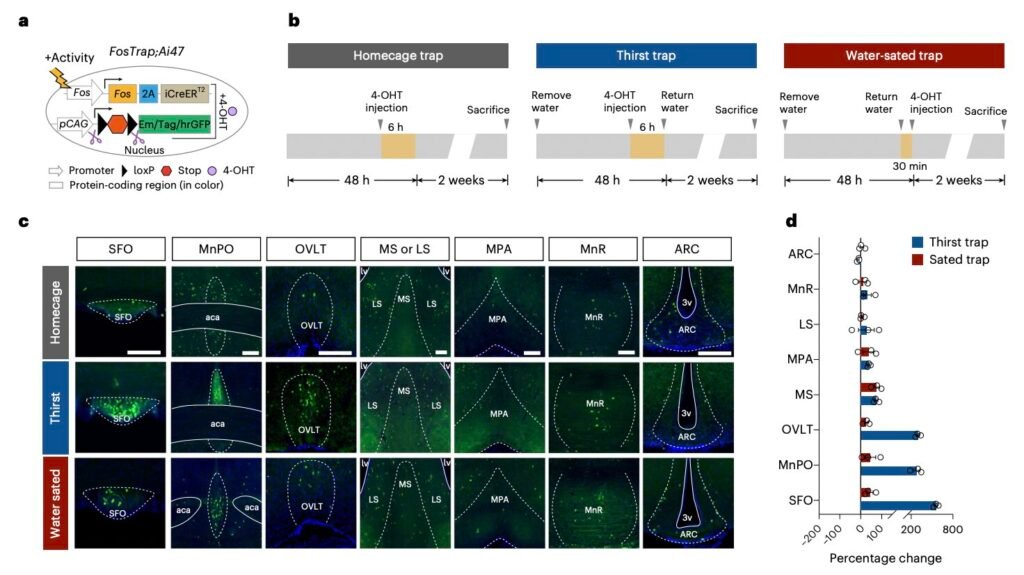Neuroscientists have long been striving to uncover the neural mechanisms that regulate essential physiological processes like drinking, eating, and sleeping. These processes play a crucial role in maintaining internal stability and overall health. Recent research conducted by scientists from Zhejiang Chinese Medical University and Zhejiang University has made significant strides in understanding how the brain controls drinking behavior in mice.
The study, published in Nature Neuroscience, focused on identifying a neural pathway that signals when the body has received enough water, prompting the mice to stop drinking. The researchers observed that drinking behavior is not only regulated by homeostatic processes but also by anticipatory signals that adjust actions before changes in blood composition occur.
By studying the neural activity of adult mice during drinking behavior, the researchers discovered a pathway connecting the medial septum (MS) and the subfornical organ (SFO) in the mouse brain. The MS, a region involved in synchronizing brain circuits, sends inhibitory signals to the SFO, a region responsible for monitoring bodily fluids. This pathway plays a crucial role in preventing overhydration by modulating the feeling of thirst in mice.
The study revealed that gamma-aminobutyric acid (GABA)ergic neurons in the MS become active during drinking and receive signals from the parabrachial nucleus, which processes oral and gastrointestinal cues. These neurons then transmit inhibitory signals to the SFO, regulating drinking behavior. When this pathway’s activity was disrupted, the mice continued to drink excessively, leading to overhydration and a decrease in blood sodium levels.
The findings highlight the importance of the MS-SFO neural pathway in regulating drinking behavior and preventing overhydration in mice. Further research could explore whether a similar pathway exists in humans or other mammals, offering insights into conditions associated with dysregulated drinking behavior and overhydration.
This study underscores the intricate neural mechanisms that govern essential physiological processes and opens up new avenues for understanding and potentially treating conditions related to fluid balance and drinking behavior. The research was meticulously conducted and offers valuable insights into the brain’s control of drinking behavior, shedding light on the complex interplay between neural circuits and bodily functions.


